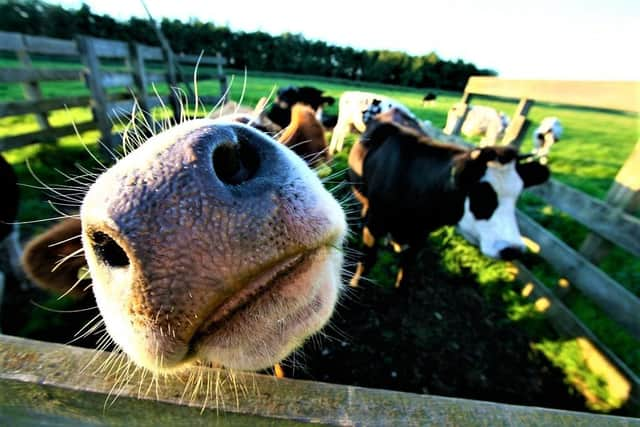'Not economically viable': Moving animal medicine from Great Britain into Northern Ireland 'is treated as an export to the EU and requires double the testing'
and live on Freeview channel 276
That was one of the assertions laid before members of the House of Lords in a committee hearing on Wednesday into the effects of the Northern Ireland Protocol on veterinary products.
Lord Dodds asked one of the witnesses before the committee, Donal Murphy of the National Office for Animal Health (a lobby group for the animal medicine industry), for some of the “main outstanding impacts” of the post-Brexit trade regime.
Advertisement
Hide AdAdvertisement
Hide AdHe said: “Since Brexit took effect in January 2022, there's been a new piece of legislation – the European Veterinary Medicines Regulation – and as part of the NI Protocol the products that are marketed in Northern Ireland are required to comply with this… notwithstanding the fact we currently have a transition period [which is due to expire in 2025]."


One of the effects of this law is as follows: “Whenever a batch of veterinary medicine is released from a factory, a process that's known as ‘batch release testing’ is required to be undertaken before those products can then enter into the supply chain…
"Under the European Veterinary Medicines Regulation, that batch testing is required to take place in the EU: on EU soil.”
So whilst the medicine is tested after coming off the production line, it has to be re-tested if it is entering into Northern Ireland.
Advertisement
Hide AdAdvertisement
Hide AdThis applies to EU-made drugs which are imported to GB, then moved to NI, the committee was told.
"When it moved from GB to NI, it would be considered to be an import into the EU, and therefore the batch release testing would need to be repeated,” said Mr Murphy.
That, though, is just “problem number one”.
Another problem is that EU law means the notes inside the packages of drugs would have to be re-written to provide an EU-based registered address for the product, not a GB one.
"It may sound like a small thing,” said Mr Murphy, “but the reality is our sector is a highly-regulated sector, and to make those changes is not a simple process; it's an administrative burden, it's time-consuming, and it's costly”.
Advertisement
Hide AdAdvertisement
Hide AdHe said that the animal drugs industry is “only about 2 to 3% [the size] of the human medicines industry,” and the Northern Irish market is just a very small part of that.
"For some of these products, the economic case to spend money on making these changes simply isn't there,” he said.
In terms of what Northern Ireland faces when the grace period runs out in 2025, Mark Little of the British Veterniary Association said: “51% or 1,700 vet medicines, are at risk of discontinuation.
"So to put that in context [it would be] half the toolbox disappearing to treat and prevent diseases."
Advertisement
Hide AdAdvertisement
Hide AdAgreeing with Mr Murphy, he said that “due to the relatively small veterinary market in Northern Ireland, the pharmaceutical industry has stated that the investment required to implement the changes would not be economically viable”.